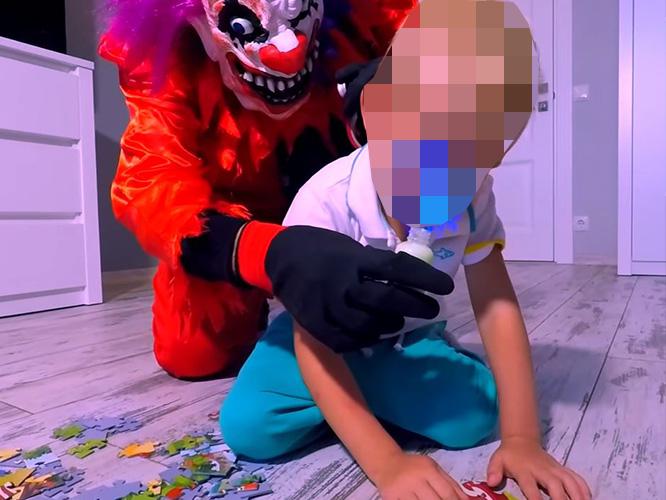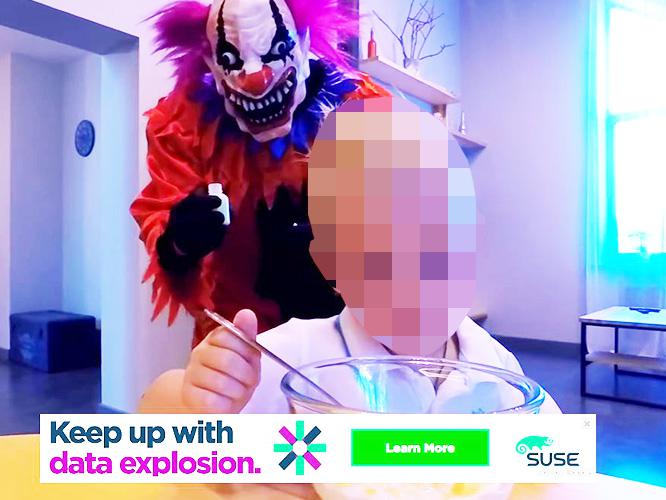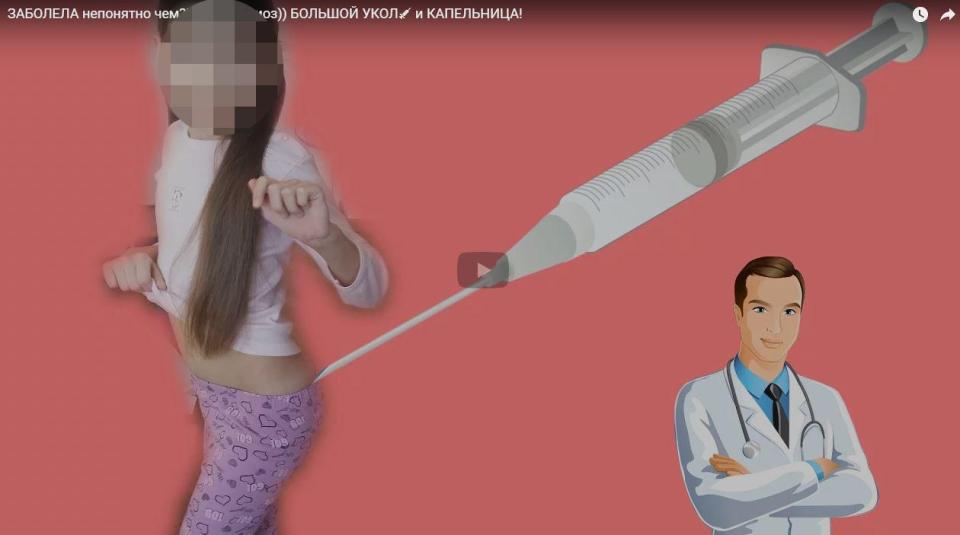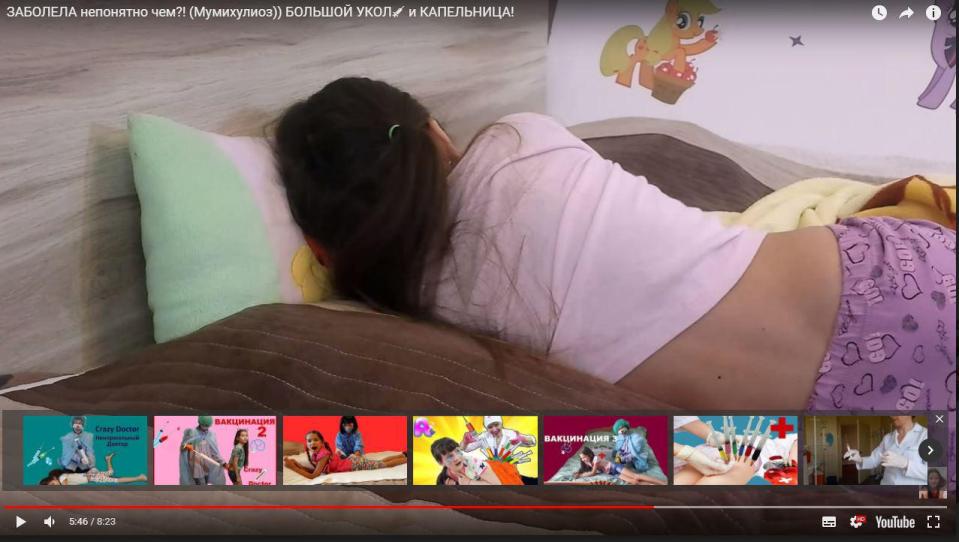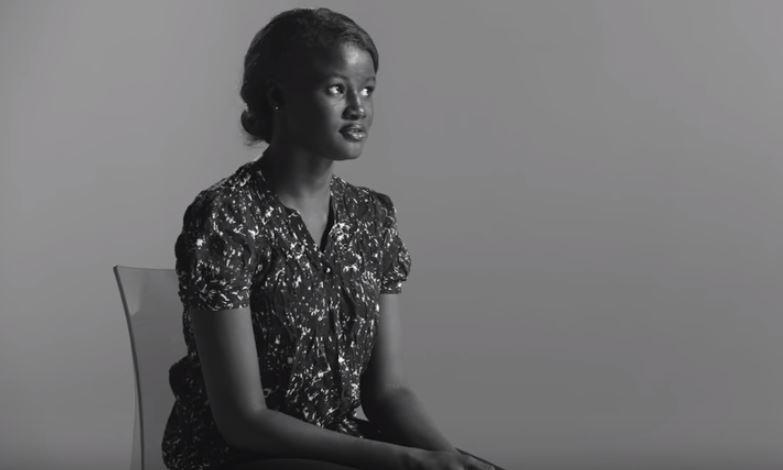YouTube accused of cashing in on ‘child exploitation’ clips – while cutting payments from platform that gives abused women a voice
Website will not pay advertising revenue to account which post videos it deems 'offensive'. So why were ads placed next to sick vids featuring kids in disturbing situations?

YOUTUBE has been accused of making money out of "child exploitation" clips while pulling adverts from channels designed to give a voice to victims of sexual trauma.
Videos that are being funded by advertising include unsettling clips showing a girl being undressed and injected by a giant-sized needle and a boy being continually drugged and tied up by an adult killer clown.
The distressing scenes were shown to The Sun Online by the founder of a channel that produces documentaries detailing brave women’s stories of rape, eating disorders and trauma.
The clips we saw were dramatised, but still disturbing.
Matan Uziel, the founder of Real Women Real Stories, says that he is struggling to continue his not-for-profit project because the Google-owned YouTube refuses to place adverts on some of his videos.
But after quizzing YouTube about why it cut him off, he began to notice sick videos featuring children in disturbing situation are still “monetised”, which means they earn advertising revenue and pass a portion of this to the creator of the clips.
YouTube is currently juggling the tough task of giving its YouTubers a voice while appeasing its advertisers.
Several companies and organisations - including the UK government - pulled adverts from the site earlier this year when a Times investigation found that their marketing material was being placed next to vile YouTube clips.
YouTube uses both a human and automated system to detect controversial words that may cause offence in the titles of videos and makes sure that adverts paid for by brands don’t appear next to them.
Certain brands refuse to appear on adverts relating to videos about controversial topics.
These include violent subjects like bullying or rape or anything of a sexual nature.
Since this new ad scheme came into force, YouTubers have been up in arms.
They claim it is a form of censorship, as they will no longer be able to create videos without getting much-needed ad cash.
Several transgender makeup tutorials were deemed inappropriate, along with lesbian and gay channels.
Yet several sick channels have been making money off the programme.
Several were removed this afternoon after The Sun brought them to the attention of Google.
Matan now says that after several months of back-and-forth with the decision makers at YouTube’s HQ, ads are still being pulled - cutting the not-for-profit from funds it needs to further its cause and "censoring women’s voices".
He told The Sun Online: “To say that sexual abuse and rape is ‘out’ is terrible for women who want to bring their stories forward and can’t because we simply don’t have the money.
“YouTube was our only source of income and now our channel is nearly dead.
He added that it was "staggering" that videos showing "child exploitation and borderline child pornography [of which] most are monetised" were still online.
Some, under the guise of "nursery rhymes for kids" or "bad babies" show “naughty” children being tied up by adults against trees and walls.
Some of them even feature child nudity.
Yet clips from Real Women Real Stories, like "Khoudia Diop Once Teased Over Dark Skin Wants To End Bullying!" and "I Was a Sex Slave to Europe's Elite at Age 6" have been "demonetised" and will not earn money from advertising.
Uziel created the popular Real Woman Real Stories channel after leaving his job as a fashion agent.
He says he witnessed the disturbing treatment of women and models throughout the industry and became an ambassador for the National Eating Disorder Association in Israel.
Now working full-time at Real Women Real Stories, Matan says that without the small amount of money he previously earned through the advertising scheme, he will struggle to help women share their story.
In correspondence seen by The Sun Online, YouTube's officials have told Matan it is simply unable to change its “path” on women’s issues and these clips will never receive funding.
GET SOCIAL How old do you have to be to have a Facebook, Snapchat or Instagram account? Social media age restrictions explained
It says that despite supporting the channel's cause, it is impossible for them to be included in the advertising programme, but Matan can still upload videos.
Revenues for Real Women Real Stories has dropped considerably since YouTube pulled the plug on their advertising.
In March 2016 the channel’s estimated revenue was $2,149 (£1,500) but revenue in June was estimated at just $11 (£8).
These funds go toward the cost of the producers and studio time, Matan says.
YouTube has been accused of censorship after introducing a controversial new policy designed to reduce the audience for videos deemed to be "inappropriate or offensive to some audiences".
It's putting videos into a "limited state" if they are deemed controversial enough to be considered objectionable, but not hateful, pornographic or violent enough to be banned altogether.
Despite that it is trying to retain freedom of speech, enabling one of its most popular voices, PewDiePie, to be broadcast despite his penchant for offending everyone in earshot.
A spokesman for Google said: "YouTube has always been a place for creators around the world to tell their stories, make connections and earn money.
"To help creators better understand how they can make money from their stories, we have publicly available which explain the types of videos where we don't allow ads to run.
"If a creator feels their videos should be monetised, we also provide a simple form for them to appeal the decision."
MORE YOUTUBE AND GOOGLE STORIES
We pay for your stories! Do you have a story for The Sun Online news team? Email us at tips@the-sun.co.uk or call 0207 782 4368. We pay for videos too. Click here to upload yours


